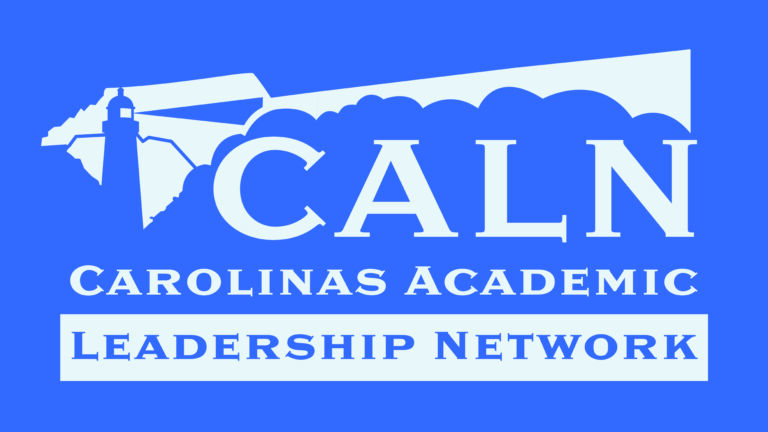Ten Ways to Supercharge Education in South Carolina

Editor
1. Get Reading Right!
A child’s reading ability at the end of third grade is a nearly perfect predictor of whether they will graduate nine years later. Other states and individual school districts right here in South Carolina have had documented success with intensely focused reading initiatives. PROGRESS 2014: Mere hours before final adjournment, the General Assembly approved Read to Succeed, which Governor Haley signed into law. This groundbreaking new law, modeled on our research of Florida’s winning formula (support + accountability = success), equips teachers and surrounds struggling readers with the focus and coaching they need to move from learning to read to reading to learn. NEXT STEPS: Good policy rises and falls on implementation and measuring results.We’ll be leveraging expert resources from around the country to assist in this monumental effort.
2. Cool it on Common Core
The adoption of Common Core State Standards (CCSS)in Math and English Language Arts (ELA) by the unrepresentative State Board of Education (see #8) came after a hard nudge from Washington. We needed a solution that promoted unquestioned South Carolina control of our schools while still setting a high bar of excellence for our students. PROGRESS 2014: The General Assembly overwhelmingly adopted legislation following the Institute’s recommended blueprint to withdraw from participation in the federally-funded CCSS Smarter Balanced Assessment Consortium [SBAC], protect student data privacy, seek input from parents, review and rewrite current standards and create a firewall against adoption of controversial national social studies and science standards. NEXT STEPS: SC-controlled Math and ELA standards are now being written in a transparent process with citizen input.Upon completion, the State Board of Education and Education Oversight Committee must approve these standards.
3. Finalize Exceptional Needs Tax Credit
In 2013, legislators passed a bipartisan budget proviso that allows South Carolina taxpayers to contribute some of their tax liability to provide private school scholarships to children with disabilities. Among the 34 proven school choice programs in America, we see great special needs models in Florida and Arizona. PROGRESS 2014: The tax credit was not made permanent in 2014, but the proviso was renewed and there are now five Scholarship Funding Organizations (SFO’s) up and running supporting the work of nearly 100 schools. NEXT STEPS: Continue a transparent, accountable implementation process for current scholarships and enact our Exceptional Needs tax credit into permanent law.
4. Support Good Charters, Close Bad Ones
South Carolina doesn’t just need more Charter Schools,it needs more good Charter Schools. If Charter Schools are to fulfill their promise here, we must address real issues they are facing such as handling students with alternative education needs and a lack of adequate funding. PROGRESS 2014:Under the leadership of House Education Chair Phil Owens,the Charter movement in South Carolina took a great stepforward with the passage of legislation creating pathways to closure, rigorous development requirements, and property tax exemptions. NEXT STEPS: There are many simple ways to help charters. We can empower new authorizors. We can insure parity in square footage, funding and technology. We can allow top flight private firms to invest in and operate charters here. We should also look at “The Parent Trigger,” a mechanism by which parents can vote to turn their public school into a charter school.
5. Incent Excellence in Teaching
In South Carolina, teachers who are effective are paid thesame as ineffective teachers. This is an insult to our best instructors,those who go the extra mile to be the best. As professionals, teachers should receive adequate preparation, ongoing mentoring and paths for continued career development. With that training, teachers should be evaluated based on the learning of their students and paid based on their students’ level of success. Bottom line: teachers matter and we must treat them with the professionalism, respect and accountability that their noble calling deserves. PROGRESS 2014: Senator Paul Thurmond and others initiated a conversation about the way South Carolina evaluates teachers with the filing of strong legislation based on documented success elsewhere. The State Board of Education adopted a policy in June that would require 30% of a teacher’s evaluation to be based on student academic growth using Value Added Measures (VAM). NEXT STEPS: Good implementation of new teacher quality assessments will be key.Continuing to engage teachers in constructive, collaborative conversations about performance pay and ending counterproductive policies like Last-In-First-Out (LIFO) are critical.
6. Alternative Paths to Certification
South Carolina is blessed with many natural born teachers who may have real world experience or solid educational accomplishments that does not include coursework in Education.Currently, many of these desperately needed potential teachers are barred from the classroom by arcane and onerous certification requirements. The South Carolina business community has been calling for alternative paths to certification for over two decades. With basic training, former college professors, former Fortune 500 executives, and scholars who chose teaching later in life could be mentoring our youth and using their gifts to move South Carolina forward. UPDATE 2014: An annual report on teacher preparation from the National Council on Teacher Quality, gives the Palmetto State a “D” grade on paths to alternative certification. Much more work is needed. NEXT STEPS: Opening new paths to teacher certification should be a top priority for the General Assembly.
7. Accountability For Pre-K Funding
We are adding to our 2014 list an item that has become the state’s favorite political football: pre-kindergarten funding.For nearly fifteen years, early education has been operating on two tracks in South Carolina: public-private 4-K programs through First Steps and traditional public school programs which have been steadily increasing in recent years. In some cases, 4-K may be a good investment, but according to reputable studies, student gains wash out within three years. NEXT STEPS: To supercharge, we need outcome-based funding accountability for the money we’re already spending and robust private choice for parents attached to any additional spending.
8. Fix Education Governance
The South Carolina State Board of Education is elected by Judicial Circuit. But Judicial Circuits are not equal in population. To complicate the legal matter further, membership rotates among the counties in each circuit. So, counties that vary widely in population, like Greenville (467,605) and Pickens (119,670) take turns at the 13th Circuit seat on the State Board of Education (SBE). This system isn’t only unrepresentative but unconstitutional. The State Board of Education should be elected from districts of equal size, not the current hodgepodge. The Superintendent should be appointed by the Governor or hired by a democratically representative State Board. While we are at it, we should merge the duplicative functions of the Education Oversight Committee (EOC) and SBE. A truly democratically selected board and a Superintendent appointed by the Governor who is a sitting member of the Cabinet will provide more accountability, more oversight, and more coordination with economic development. UPDATE 2014: Governance reform is a long term effort, but discussions on a host of critical public policy issues showed the inadequacy of the current system. The Common Core issue shed light on governance dysfunction and led to open discussion of reform. NEXT STEPS: Fixing these problems will require legislative action and a Constitutional amendment: a tall order, but essential to move South Carolina education into the 21st century.
9. Consolidate School District Governance
Anyone who has been paying attention knows that some chronically failing school districts need special attention. We believe it is time to ramp up our efforts with a statewide Turnaround District. This concept would allow underperforming schools to be transferred to a Turnaround District charged with bringing them up to standard. Another part of that conversation is the opportunity to consolidate our 88 school districts into a more manageable number. Orangeburg showed great leadership in consolidating three districts into one, and Sumter’s district is now countywide. Still, South Carolina has school districts with only one primary, elementary, middle and high school each. NEXT STEPS: It’s time to streamline!
10. Grade Schools
Simple concepts can often become complicated when crossing the border into South Carolina. Such is the case with the grading of teachers and schools. We currently have a dual system where districts and schools are rated from “Excellent” to “At Risk.” Within that rating is an “Absolute” rating and a “Growth” rating. What does that really mean? A new system, developed to match the experience of the eight other states that have created letter grade systems, not only gives grades of A-F, but drills down deeper, grading the progress of subgroups. The system is more easily understood and detects gaps in achievement. NEXT STEPS: The legislature should settle on one system and it should be the method with a proven track record of empowering parents with accurate and understandable information about the performance of their child’s school.







